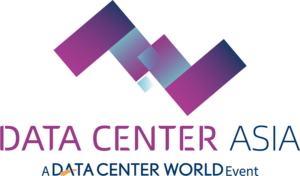Data centers are essential because they provide the infrastructure to store, process, and manage digital data securely, support cloud computing and enterprise applications, ensure business continuity, and enable fast, reliable access to information for organizations and consumers.

Join Data Center Asia Malaysia 2025
Don’t miss Data Center Asia Malaysia 2025, part of Smart Nation Expo, where Malaysia’s data center ecosystem comes alive. Attend expert-led seminars, discover cutting-edge technologies, and network with industry leaders driving cloud, edge computing, and sustainable infrastructure across the region. Secure your spot as a visitor or exhibitor!
Major Functions of Data Centers In the Modern World
1. Centralized Infrastructure for Digital Operations
Data centers house critical IT infrastructure, including servers, storage systems, and networking equipment, enabling organizations to manage and process data efficiently. This centralized setup supports various business functions, from web applications to internal operations like accounting and human resources.
2. Enabling Cloud Computing and Virtualization
Modern data centers facilitate cloud computing, allowing businesses to access scalable computing resources over the internet. They support virtualization technologies that enable multiple virtual machines to run on a single physical server, optimizing resource utilization and flexibility.
3. Supporting Big Data and Artificial Intelligence
The rise of big data analytics and AI has increased the demand for data centers. These facilities provide the necessary computational power and storage capacity to process large datasets and train complex machine learning models, driving advancements in various industries.
4. Ensuring Business Continuity and Disaster Recovery
Data centers implement redundancy measures, such as backup power supplies and data replication, to ensure business continuity. In the event of hardware failures or disasters, these facilities enable rapid recovery of critical data and applications, minimizing downtime and operational disruptions.
5. Providing Robust Security and Compliance
Data centers are equipped with advanced security protocols, including firewalls, intrusion detection systems, and physical security measures, to protect data from unauthorized access and cyber threats. They also help organizations comply with regulatory requirements by implementing necessary controls and audits.
6. Facilitating Global Connectivity and Content Delivery
Strategically located data centers enhance global connectivity, reducing latency and improving the performance of internet services. They play a crucial role in content delivery networks (CDNs), ensuring fast and reliable access to digital content worldwide.
In summary, data centers are not merely physical spaces; they are integral to the functionality, security, and scalability of digital services that businesses and individuals rely on daily. As digital transformation accelerates, the role of data centers becomes even more critical in supporting innovation and economic growth.
